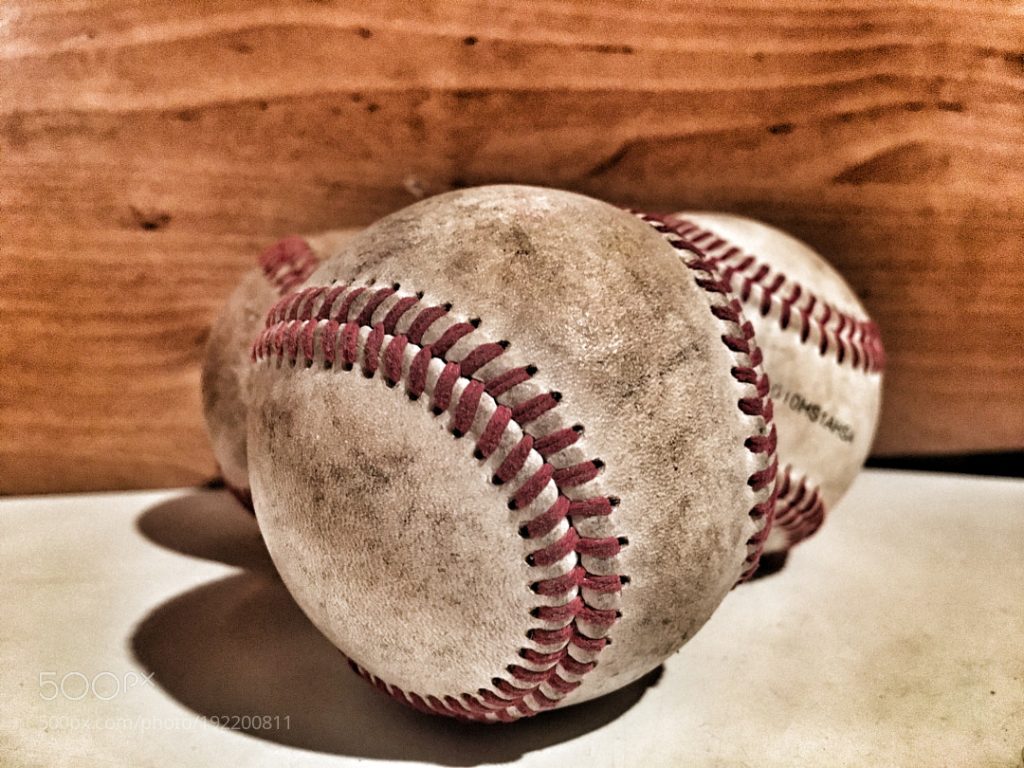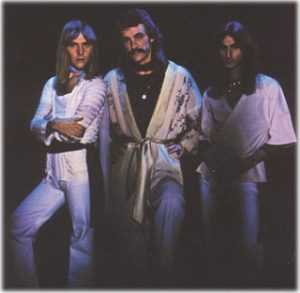Moses “Fleet” Walker was born on October 7, 1857 in Mount Pleasant, Ohio. His parents were Reverend Moses W. Walker, M.D. and Caroline Maria Simpson. Moses was the fifth oldest out of seven children. His family nicknamed him “Fleet” growing up in order to distinguish him from his father.1 Walker and the rest of his family were not considered an ordinary African American family. Due to his father being both a reverend and a physician, the Walkers were considered “free and educated blacks, with upper middle class economic advantages.”2 This would become one of the key reasons why Fleet never really witnessed racism in his childhood years.
The segregation of blacks from whites was the law in the former Confederate States. However, Walker grew up in Ohio, where segregation was practiced more informally. African American people were not allowed certain jobs and were not allowed to live in certain areas. However, Moses did not witness much of this growing up, because of his fathers’ status in society.3
Since Fleets’ father was a physician, he did not have to work growing up. This allowed him time to focus on school and on playing baseball in his free time. Fleet was a natural athlete and very intelligent. In school, he was expected to keep up his good grades and attend every day. He was introduced to baseball when he moved to Steubenville by a group of veterans from the Civil War period, who had actually helped Abner Doubleday in forming the game of baseball.4

When Fleet was ten years old, the National Association of Base Ball Players was created to form the very first baseball league. On December 11, 1867, 237 delegates met in Philadelphia to propose rules, salaries, and other considerations for their league.5 One of the major issues they had to deal with was whether they would allow multiple races into the league. Since this league was created in the North, they believed that the color line was necessary in order to have Southern States willing to join in on the league as well. Therefore, in the first set of rules for the league, their ruling read:
It is not presumed by your committee that any club who has applied are composed of persons of color or any portion of them and the recommendations of your committee in your report are based upon this view and they unanimously report against the admission of any club which may be composed of one of none colored person.6
Four years after this committee was created it was replaced by the National Association of Professional Baseball Players. They took out this rule and simply stated that it was a “gentlemen’s agreement” that blacks were not allowed in the league. As a child, Fleet was unaware that African Americans were not allowed in the League, as this became his childhood dream to turn baseball into a career.7
Growing up, Fleet played in integrated baseball teams, and he played the usual pick-up games in the neighborhood with his friends. When Fleet turned twenty in 1878, he and his family moved to Oberlin, Ohio due to a job promotion his father received. Here Moses started college at Oberlin College.8 When he started, there was no collegiate sports at Oberlin. However, in Fleet’s third year at Oberlin, it became the very first school to form a collegiate baseball program. Fleet’s first season was a success, and he earned recognition as “one of the best all-around college athletes in the land.”9 After his first season, Fleet left Oberlin to go to the University of Michigan to pursue a law degree and continue his baseball career there as a catcher. At Michigan, he and his brother both played for the team, but Fleet did exceptionally well. Fleet went on to play two years at the University of Michigan. He never ended up graduating because, at age twenty-five, Fleet was offered a professional baseball contract to play for the Toledo Baseball Club.10 At this time, in 1884, the league consisted of eight clubs in the Northwestern League. He accepted the contract and was the second player drafted into the league. Fleet made his major-league debut on May 5, 1884, and did outstanding in his first season. He led the team to win the very first league championship. With the creation of the league, they started to play teams from other parts of the country, and came up with what is now known as the World Series. Fleet and the rest of the Toledo Baseball Club were supposed to play the Chicago White Stockings for the championship. However, the manager of the White Stockings Adrian Anson refused to play if Fleet walked onto the field. This was the very first time Walker experienced racism in the Major Leagues.

Fleet was a catcher, and because he was African American, he was not allowed to catch with a glove, face mask, or chest protector. Reports said that Fleet’s hands were always blistered and bloody after games.11 This was one of many obstacles Fleet faced due to his race. Throughout his baseball career, Fleet was the target of fan abuse and from opposing players. Fans would throw food and other items, spit, and say harsh things to him while he would play. He also received threats from certain baseball clubs saying that if Fleet stepped foot in the stadium with a uniform on, men would be there ready to mob him. Due to the constant injuries from playing with no gear, Fleet never ended up playing in these cities.12
Although Fleet led the leagues, after having so many injuries, the Toledo Baseball Club released Walker in 1885. He then moved on to play for a minor league team in Cleveland. This team soon became banned because they broke the “blue law” of playing games on Sundays. Walker then moved to play in Waterbury, Connecticut in the Eastern Leagues. After playing one season, he moved again due to teammates not being cooperative with Fleet because of his race, to a team in Newark, New Jersey.13 On this team, he was signed with another African American player named George Stoney. After playing a season of sixty-nine games together, many fans and workers of the league started to make claims that blacks should be allowed to play everywhere. “They make the teams stronger and they bring in more business.”14 This was not the thinking of everyone, however, as the racism against Fleet continued. In a game against Chicago, the opposing players all walked off the field, leaving the game when they saw Fleet and Stoney warming up to play. Also, some of Fleet’s white teammates refused to take team photos if Fleet and Stoney were going to be in them. All the white pitchers on this team never listened to Fleet when he called pitches and threw whatever they wanted just to make Fleet look bad. This became a bit overwhelming, and many coaches in the league began to push to ban African Americans; and in 1885, they were all moved to an international league club in Syracuse. Fleet became the last known African American to play for the league in Syracuse. Blacks were no longer allowed in Major league clubs and had to be recruited into a minor-league team. Fleet was allowed to play for a minor-league club in Oconto, Wisconsin until his retirement in 1891.

Once retired, Fleet decided to buy a house in Syracuse to try and find work. Although he was very well educated, well known, and the son of a physician, the only work he could find was as a railroad worker. This really wasn’t how Fleet envisioned living out his life after baseball, but it was the only choice he had. In Syracuse, Fleet still experienced racism, both at work and around his neighborhood. On April 9, 1891, Fleet was having a drink after work in his neighborhood, when a white man approached him asking what he was doing in such a nice neighborhood and why he wasn’t out working somewhere. When Fleet ignored the man, he threw a rock at him and lunged at Fleet in attempt to assault him. In self-defense Fleet stabbed the man, killing him. Two months later all charges were dropped against Fleet, and he then moved back to Steubenville, Ohio.15 He then spent the remainder of his life managing an opera house with his brother before passing away on May 11, 1924 at the age of sixty-six.16
Fleet lived out the rest of his life with his family and away from a baseball field. Although Fleet is the very first African American baseball player and catcher, he is not really recognized as such because he played when the leagues were first forming in a time now called the “dead period.” This is the reason why Jackie Robinson is said to be the first African American in what is now called “modern baseball.” However, Fleet has been recognized in the Hall of Fame for his efforts in starting the league for players today. Moses “Fleet” Walker is very strong to have played as long as he did despite the racism he experienced throughout his career. He paved the way for players like Jackie Robinson and all that came after him to play in Major League Baseball.
- David W. Zang, Fleet Walker’s divided heart: The life of Baseball’s First Black Major Leaguer (Lincoln: University of Nebraska Press, 1998), 169. ↵
- Nudie E. Williams, “Footnote to Trivia: Moses Fleetwood Walker and the All-American Dream,” Journal of American Culture vol.11 (1988): 65. ↵
- Edward R. Lee, “Moses Fleetwood Walker,” Blackfax vol.9 (1999): 37. ↵
- Nudie E. Williams, “Footnote to Trivia: Moses Fleetwood Walker and the All-American Dream,” Journal of American Culture vol.11 (1988): 66. ↵
- Nudie E. Williams, “Footnote to Trivia: Moses Fleetwood Walker and the All-American Dream,” Journal of American Culture vol.11 (1988): 65-72. ↵
- Nudie E. Williams, “Footnote to Trivia: Moses Fleetwood Walker and the All-American Dream,” Journal of American Culture (2001): 65-72. ↵
- Nudie E. Williams, “Footnote to Trivia: Moses Fleetwood Walker and the All-American Dream,” Journal of American Culture vol.11 (1988): 66. ↵
- David W. Zang, Fleet Walker’s divided heart: The life of Baseball’s First Black Major Leaguer (Lincoln: University of Nebraska Press, 1998), 169. ↵
- Nudie E. Williams, “Footnote to Trivia: Moses Fleetwood Walker and the All-American Dream,” Journal of American Culture vol.11 (1988): 67. ↵
- Edward R. Lee, “Moses Fleetwood Walker,” Blackfax vol.9 (1999): 37. ↵
- Nudie E. Williams, “Footnote to Trivia: Moses Fleetwood Walker and the All-American Dream,” Journal of American Culture vol.11 (1988): 67. ↵
- Nudie E. Williams, “Footnote to Trivia: Moses Fleetwood Walker and the All-American Dream,” Journal of American Culture vol.11 (1988): 67. ↵
- David W. Zang, Fleet Walker’s divided heart: The life of Baseball’s First Black Major Leaguer (Lincoln: University of Nebraska Press, 1998), 169. ↵
- Nudie E. Williams, “Footnote to Trivia: Moses Fleetwood Walker and the All-American Dream,” Journal of American Culture vol.11 (1988): 68. ↵
- Edward R. Lee, “Moses Fleetwood Walker,” Blackfax vol.9 (1999): 37. ↵
- David W. Zang, Fleet Walker’s divided heart: The life of Baseball’s First Black Major Leaguer (Lincoln: University of Nebraska Press, 1998), 169. ↵



107 comments
Madison Magaro
This was a very well written, inspiring article. Fleet moved around a lot so that he would be able to play baseball and show off his skills. When he was able to catch it is crazy that they would not allow him to wear any gear or glove to catch. He is an inspiration because of his determination to play a sport that he loved.
Geraldine Fry
Thank you for this article and for finally giving Fleet some recognition for his baseball skills. It is quite saddening that he was never recognized in his time and ended up working for the railroad when retiring. I never paid attention to baseball but it’s great to now know one of the legends. He was a trendsetter for players to come.
Marissa Rendon
Great article! I think it is very heart breaking and cruel that they did not let Moses wear any gear at all. I think it sucks how many times he had to move just to play. Even after the many games he’d won. It’s very unfair that just because he was an African American he was not allowed to use a glove to catch.
Olivia Gray
Wow! This was a really great article and very inspiring story. I can’t imagine how fleet felt being treated so differently than the other baseball players just because of the color of his skin. Fleets determination to play baseball despite what others thought and said about him is truly an inspiring thing. The fact that he was willing to not wear any protective gear really shows his love for his sport. He really left a remarkable legacy behind.
Geraldine G Fry
Thank you for this article and for finally giving Fleet some recognition for his baseball skills. It is quite saddening that he was never recognized in his time and ended up working for the railroad when retiring. I never paid attention to baseball but it’s great to now know one of the legends. He was a trendsetter for players to come.
Tabitha Babcock
This article was so well structured! there was a very clear story from beginning to end. I was so surprised to learn that they didn’t let him wear any protective gear. That’s so inhumane. Not only that, but he kept having to move around just to play! Thank you for giving him the spotlight he deserves. I’ve heard so many stories of Jackie Robinson but hadn’t heard about Fleet before this and it makes me so sad to think he’s a forgotten figure in history.
Carolina Wieman
This story is an inspiration to those wanted to complete the impossible. Unfortunately during this era segregation was still high and created racial challenges for Moses Fleet. I appreciated how the author was able to create a story and portray Fleet as an intelligent man who would fight till he accomplished what he set out to do. Fleet faced many challenges which the author wrote as small battles for a major victory.
Andrea Tapia
This article moves me a lot, it gave me chills throughout my body when reading it. Growing up I experience some racism being Mexican and knowing that blacks had it way worse is sad to see what a society we live in because racism is till an issue today. Knowing how well he grew up with not receiving so much hate and later on being punished and not accepted to play his dream sport just because he was black is devastating. Thanks to Fleet he has now changed the life of not only blacks, but many colored people to live out their dreams without hate being an issue of what they can do. I wish he could have done more with his career, but I know his proud for his work and the life he lived as he could even if he didn’t expected it.
Bryon Haynes
It’s always interesting to hear stories about the “First Black…” someone because it raises the question of why did we have to work so hard just to earn that title in the first place? And not only did we have to work harder than most, we had to endure so much racism, discrimination, and hatred through it all. The endurance and strength one must have to face such adversity continuously isn’t something to scoff at because the work isn’t done and these are issues we still face to this day. Fleet being a forgotten figure doesn’t surprise me and the fact that he spent a lot of his life away from the baseball field hurts more than anything, but I’m so glad this article honors him and his legacy when the world wouldn’t.
Anaely Caez Santana
This article was really informative. It is always great to read stories about young people that do not let anybody stop them from going towards what they want. it is very encouraging to read articles that not only teach you a lot but are very informative. Fleet’s dedication and commitment to playing baseball regardless of all the racism and discrimination takes a lot of determination.